Fleurs du Mal Magazine


Or see the index

Brought together for the first time, here are 100 pieces of ‘Oulipo’ writing, celebrating the literary group who revelled in maths problems, puzzles, trickery, wordplay and conundrums.
Featuring writers including Georges Perec, Raymond Queneau and Italo Calvino, it includes poems, short stories, word games and even recipes. Alongside these famous Oulipians, are ‘anticipatory’ wordsmiths who crafted language with unusual constraints and literary tricks, from Jonathan Swift to Lewis Carroll.
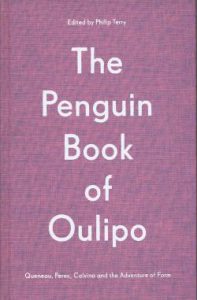 Philip Terry is a translator, and a writer of fiction and poetry. He has translated the work of Georges Perec, Stéphane Mallarmé and Raymond Queneau, and is the author of the novel tapestry, shortlisted for the Goldsmiths Prize.
Philip Terry is a translator, and a writer of fiction and poetry. He has translated the work of Georges Perec, Stéphane Mallarmé and Raymond Queneau, and is the author of the novel tapestry, shortlisted for the Goldsmiths Prize.
His poetry volumes include Oulipoems, Shakespeare’s Sonnets, Dante’s Inferno (a Times Literary Supplement Book of the Year, London Review Bookshop Book of the Week, and recipient of a Society of Authors Travelling Scholarship Prize), Quennets, and Dictator, a version of the Epic of Gilgamesh in Globish.
He is currently translating Ice Age signs from the caves at Lascaux.
• ‘Philip Terry’s collection is packed with fabulous, wide-ranging work that displays the full ingenuity, brio and originality of Oulipian ideals in action. An exhilarating feat of in-depth reading, and translating, it takes its place as the definitive anthology in English for decades to come.’ – Marina Warner
• Philip Terry’s playful selection will appeal to lovers of word games, puzzles and literary delights.
The Penguin Book of Oulipo
Queneau, Perec, Calvino and the Adventure of Form
Edited by Philip Terry
Imprint: Penguin Classics
Published: 31/10/2019
ISBN: 9780241378427
Hardcover
Length: 576 Pages
Dimensions: 240mm x 49mm x 162mm
RRP: £25.00
# new books
The Penguin Book of Oulipo
Queneau, Perec, Calvino and the Adventure of Form
Philip Terry (Edited by)
• fleursdumal.nl magazine
More in: #Archive Concrete & Visual Poetry, - Book Lovers, - Book News, - Objets Trouvés (Ready-Mades), Archive C-D, Archive O-P, Archive Q-R, Art & Literature News, AUDIO, CINEMA, RADIO & TV, Carroll, Lewis, Dadaïsme, Georges Perec, OULIPO (PATAFYSICA), Surrealisme, Swift, Jonathan
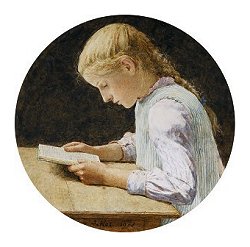
Lewis Carroll
(1832-1898)
Father William
‘You are old, Father William,’ the young man said,
‘And your hair has become very white;
And yet you incessantly stand on your head –
Do you think, at your age, it is right?’
‘In my youth,’ Father William replied to his son,
‘I feared it might injure the brain;
But now that I’m perfectly sure I have none,
Why, I do it again and again.’
‘You are old,’ said the youth, ‘as I mentioned before,
And have grown most uncommonly fat;
Yet you turned a back-somersault in at the door –
Pray, what is the reason of that?’
‘In my youth,’ said the sage, as he shook his grey locks,
‘I kept all my limbs very supple
By the use of this ointment – one shilling a box –
Allow me to sell you a couple?’
‘You are old,’ said the youth, ‘and your jaws are too weak
For anything tougher than suet;
Yet you finished the goose, with the bones and the beak –
Pray, how did you manage to do it?’
‘In my youth,’ said his father, ‘I took to the law,
And argued each case with my wife;
And the muscular strength that it gave to my jaw,
Has lasted the rest of my life.’
‘You are old,’ said the youth, ‘one would hardly suppose
That your eye was as steady as ever;
Yet you balanced an eel on the end of your nose –
What made you so awfully clever?’
‘I have answered three questions, and that is enough,’
Said his father; ‘don’t give yourself airs!
Do you think I can listen all day to such stuff?
Be off, or I’ll kick you down stairs!’
Lewis Carroll poetry
fleursdumal.nl magazine
More in: Archive C-D, Carroll, Lewis
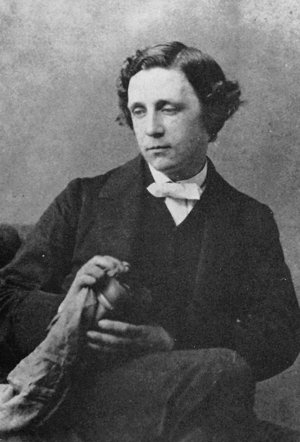
Lewis Carroll
(1832 — 1898)
Echoes
Lady Clara Vere de Vere
Was eight years old, she said:
Every ringlet, lightly shaken, ran itself in golden thread.
She took her little porringer:
Of me she shall not win renown:
For the baseness of its nature shall have strength to drag her
down.
“Sisters and brothers, little Maid?
There stands the Inspector at thy door:
Like a dog, he hunts for boys who know not two and two are four.”
“Kind words are more than coronets,”
She said, and wondering looked at me:
“It is the dead unhappy night, and I must hurry home to tea.”
Lewis Carroll poetry
fleursdumal.nl magazine
More in: Archive C-D, Carroll, Lewis

Lewis Carroll
(1832 — 1898)
Echoes
Lady Clara Vere de Vere
Was eight years old, she said:
Every ringlet, lightly shaken, ran itself in golden thread.
She took her little porringer:
Of me she shall not win renown:
For the baseness of its nature shall have strength to drag her
down.
“Sisters and brothers, little Maid?
There stands the Inspector at thy door:
Like a dog, he hunts for boys who know not two and two are four.”
“Kind words are more than coronets,”
She said, and wondering looked at me:
“It is the dead unhappy night, and I must hurry home to tea.”
Lewis Carroll poetry
kempis.nl poetry magazine
More in: Archive C-D, Carroll, Lewis
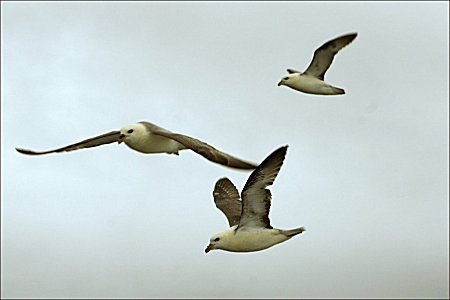

Little Birds
Little Birds are dining
Warily and well,
Hid in mossy cell:
Hid, I say, by waiters
Gorgeous in their gaiters –
I’ve a Tale to tell.
Little Birds are feeding
Justices with jam,
Rich in frizzled ham:
Rich, I say, in oysters
Haunting shady cloisters –
That is what I am.
Little Birds are teaching
Tigresses to smile,
Innocent of guile:
Smile, I say, not smirkle –
Mouth a semicircle,
That’s the proper style!
Little Birds are sleeping
All among the pins,
Where the loser wins:
Where, I say, he sneezes
When and how he pleases –
So the Tale begins.
Little Birds are writing
Interesting books,
To be read by cooks:
Read, I say, not roasted –
Letterpress, when toasted,
Loses its good looks.
Little Birds are playing
Bagpipes on the shore,
Where the tourists snore:
“Thanks!” they cry. “‘Tis thrilling!
Take, oh take this shilling!
Let us have no more!”
Little Birds are bathing
Crocodiles in cream,
Like a happy dream:
Like, but not so lasting –
Crocodiles, when fasting,
Are not all they seem!
Little Birds are choking
Baronets with bun,
Taught to fire a gun:
Taught, I say, to splinter
Salmon in the winter –
Merely for the fun.
Little Birds are hiding
Crimes in carpet-bags,
Blessed by happy stags:
Blessed, I say, though beaten –
Since our friends are eaten
When the memory flags.
Little Birds are tasting
Gratitude and gold,
Pale with sudden cold:
Pale, I say, and wrinkled –
When the bells have tinkled,
And the Tale is told.
Lewis Carroll
(1832-1898)
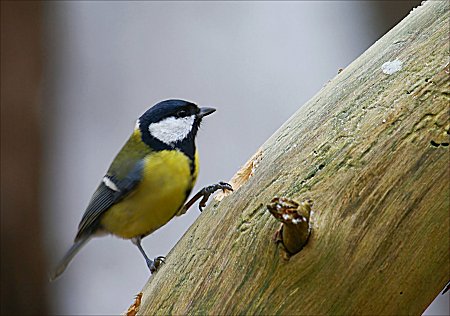
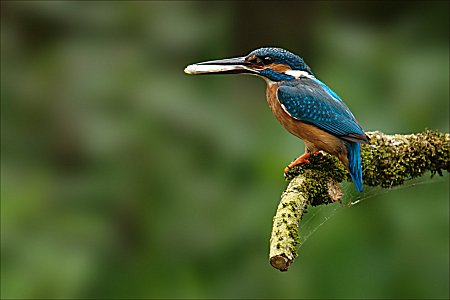
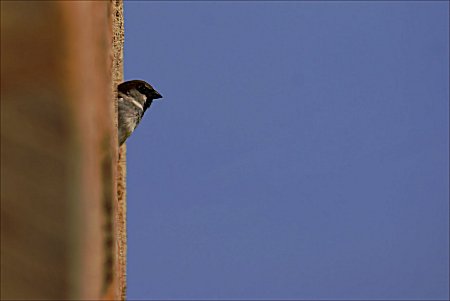
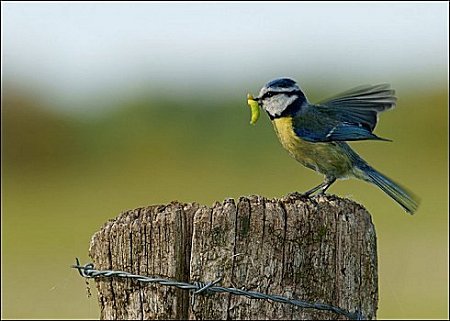
Hans Hermans photos – Natuurdagboek 05-12
Gedicht Lewis Carroll
fleursdumal.nl magazine
More in: Carroll, Lewis, Hans Hermans Photos
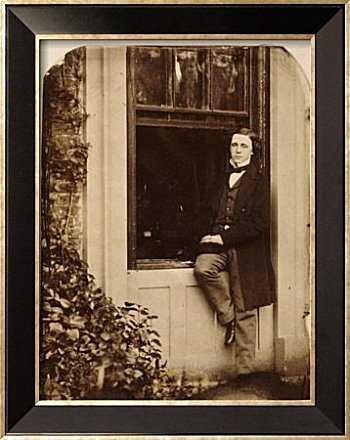
Lewis Carroll
(1832-1898)
Poeta Fit, Non Nascitur
“How shall I be a poet?
How shall I write in rhyme?
You told me once `the very wish
Partook of the sublime.’
The tell me how! Don’t put me off
With your `another time’!”
The old man smiled to see him,
To hear his sudden sally;
He liked the lad to speak his mind
Enthusiastically;
And thought “There’s no hum-drum in him,
Nor any shilly-shally.”
“And would you be a poet
Before you’ve been to school?
Ah, well! I hardly thought you
So absolute a fool.
First learn to be spasmodic —
A very simple rule.
“For first you write a sentence,
And then you chop it small;
Then mix the bits, and sort them out
Just as they chance to fall:
The order of the phrases makes
No difference at all.
`Then, if you’d be impressive,
Remember what I say,
That abstract qualities begin
With capitals alway:
The True, the Good, the Beautiful —
Those are the things that pay!
“Next, when we are describing
A shape, or sound, or tint;
Don’t state the matter plainly,
But put it in a hint;
And learn to look at all things
With a sort of mental squint.”
“For instance, if I wished, Sir,
Of mutton-pies to tell,
Should I say `dreams of fleecy flocks
Pent in a wheaten cell’?”
“Why, yes,” the old man said: “that phrase
Would answer very well.
“Then fourthly, there are epithets
That suit with any word —
As well as Harvey’s Reading Sauce
With fish, or flesh, or bird —
Of these, `wild,’ `lonely,’ `weary,’ `strange,’
Are much to be preferred.”
“And will it do, O will it do
To take them in a lump —
As `the wild man went his weary way
To a strange and lonely pump’?”
“Nay, nay! You must not hastily
To such conclusions jump.
“Such epithets, like pepper,
Give zest to what you write;
And, if you strew them sparely,
They whet the appetite:
But if you lay them on too thick,
You spoil the matter quite!
“Last, as to the arrangement:
Your reader, you should show him,
Must take what information he
Can get, and look for no im
mature disclosure of the drift
And purpose of your poem.
“Therefore to test his patience —
How much he can endure —
Mention no places, names, or dates,
And evermore be sure
Throughout the poem to be found
Consistently obscure.
“First fix upon the limit
To which it shall extend:
Then fill it up with `Padding’
(Beg some of any friend)
Your great SENSATION-STANZA
You place towards the end.”
“And what is a Sensation,
Grandfather, tell me, pray?
I think I never heard the word
So used before to-day:
Be kind enough to mention one
`Exempli gratiâ'”
And the old man, looking sadly
Across the garden-lawn,
Where here and there a dew-drop
Yet glittered in the dawn,
Said “Go to the Adelphi,
And see the `Colleen Bawn.’
“The word is due to Boucicault —
The theory is his,
Where Life becomes a Spasm,
And History a Whiz:
If that is not Sensation,
I don’t know what it is,
“Now try your hand, ere Fancy
Have lost its present glow —”
“And then,” his grandson added,
“We’ll publish it, you know:
Green cloth — gold-lettered at the back —
In duodecimo!”
Then proudly smiled that old man
To see the eager lad
Rush madly for his pen and ink
And for his blotting-pad —
But, when he thought of publishing,
His face grew stern and sad.

Lewis Carroll poetry
kempis.nl poetry magazine
More in: Archive C-D, Carroll, Lewis

L e w i s C a r r o l l
(1832-1898)
Size and Tears
When on the sandy shore I sit,
Beside the salt sea-wave,
And fall into a weeping fit
Because I dare not shave –
A little whisper at my ear
Enquires the reason of my fear.
I answer "If that ruffian Jones
Should recognise me here,
He’d bellow out my name in tones
Offensive to the ear:
He chaffs me so on being stout
(A thing that always puts me out)."
Ah me! I see him on the cliff!
Farewell, farewell to hope,
If he should look this way, and if
He’s got his telescope!
To whatsoever place I flee,
My odious rival follows me!
For every night, and everywhere,
I meet him out at dinner;
And when I’ve found some charming fair,
And vowed to die or win her,
The wretch (he’s thin and I am stout)
Is sure to come and cut me out!
The girls (just like them!) all agree
To praise J. Jones, Esquire:
I ask them what on earth they see
About him to admire?
They cry "He is so sleek and slim,
It’s quite a treat to look at him!"
They vanish in tobacco smoke,
Those visionary maids –
I feel a sharp and sudden poke
Between the shoulder-blades –
"Why, Brown, my boy! Your growing stout!"
(I told you he would find me out!)
"My growth is not YOUR business, Sir!"
"No more it is, my boy!
But if it’s YOURS, as I infer,
Why, Brown, I give you joy!
A man, whose business prospers so,
Is just the sort of man to know!
"It’s hardly safe, though, talking here –
I’d best get out of reach:
For such a weight as yours, I fear,
Must shortly sink the beach!" –
Insult me thus because I’m stout!
I vow I’ll go and call him out!

Atlanta in Camden-Town
AY, ’twas here, on this spot,
In that summer of yore,
Atalanta did not
Vote my presence a bore,
Nor reply to my tenderest talk "She had
heard all that nonsense before."
She’d the brooch I had bought
And the necklace and sash on,
And her heart, as I thought,
Was alive to my passion;
And she’d done up her hair in the style that
the Empress had brought into fashion.
I had been to the play
With my pearl of a Peri –
But, for all I could say,
She declared she was weary,
That "the place was so crowded and hot, and
she couldn’t abide that Dundreary."
Then I thought "Lucky boy!
‘Tis for YOU that she whimpers!"
And I noted with joy
Those sensational simpers:
And I said "This is scrumptious!" – a
phrase I had learned from the Devonshire shrimpers.
And I vowed "’Twill be said
I’m a fortunate fellow,
When the breakfast is spread,
When the topers are mellow,
When the foam of the bride-cake is white,
and the fierce orange-blossoms are yellow!"
O that languishing yawn!
O those eloquent eyes!
I was drunk with the dawn
Of a splendid surmise –
I was stung by a look, I was slain by a tear,
by a tempest of sighs.
Then I whispered "I see
The sweet secret thou keepest.
And the yearning for ME
That thou wistfully weepest!
And the question is ‘License or Banns?’,
though undoubtedly Banns are the cheapest."
"Be my Hero," said I,
"And let ME be Leander!"
But I lost her reply –
Something ending with "gander" –
For the omnibus rattled so loud that no
mortal could quite understand her.
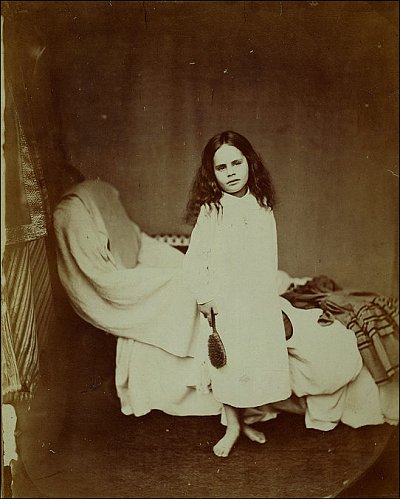
Jabberwocky
‘Twas brillig, and the slithy toves
Did gyre and gimble in the wade;
All mimsy were the borogoves,
And the mome raths outgrabe.
"Beware the Jabberwock, my son!
The jaws that bite, the claws that catch!
Beware the Jubjub bird, and shun
The frumious Bandersnatch!"
He took his vorpal sword in hand:
Long time the manxome foe he sought —
So rested he by the Tumtum tree.
And stood awhile in thought.
And as in uffish thought he stood,
The Jabberwock, with eyes of flame,
Came wiffling through the tulgey wood,
And burbled as it came!
One, two! One, two! And through and through
The vorpal blade went snicker-snack!
He left it dead, and with its head
He went galumphing back.
"And hast thou slain the Jabberwock?
Come to my arms, my beamish boy!
O frabjous day! Callooh! Callay!"
He chortled in his joy.
‘Twas brillig, and the slithy toves
Did gyre and gimble in the wabe;
All mimsy were the borogoves,
And the mome raths outgrabe.
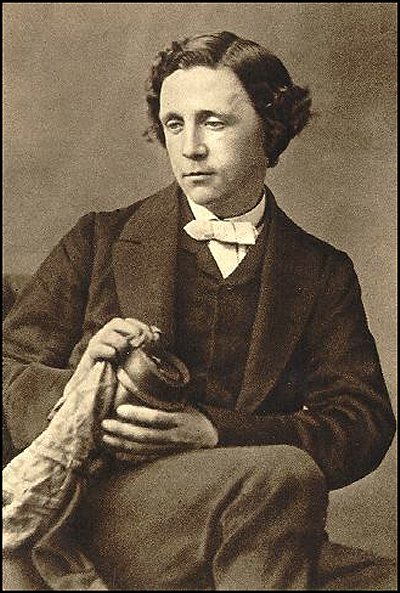
Lewis Carroll: Three Poems
KEMP=MAG poetry magazine
More in: Carroll, Lewis, Children's Poetry

L e w i s C a r r o l l
(1832-1898)
E c h o e s
Lady Clara Vere de Vere
Was eight years old, she said:
Every ringlet, lightly shaken, ran itself in golden thread.
She took her little porringer:
Of me she shall not win renown:
For the baseness of its nature shall have strength to drag her
down.
“Sisters and brothers, little Maid?
There stands the Inspector at thy door:
Like a dog, he hunts for boys who know not two and two are four.”
“Kind words are more than coronets,”
She said, and wondering looked at me:
“It is the dead unhappy night, and I must hurry home to tea.”
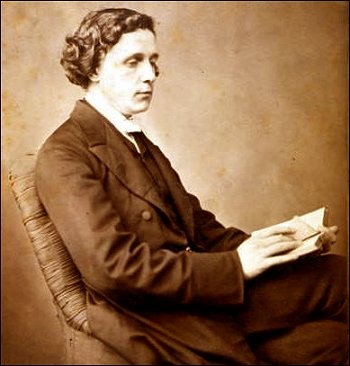
kempis poetry magazine
More in: Archive C-D, Carroll, Lewis, Children's Poetry

L e w i s C a r r o l l
(1832-1898)
A BOAT BENEATH A SUNNY SKY
A boat beneath a sunny sky,
Lingering onward dreamily
In an evening of July —
Children three that nestle near,
Eager eye and willing ear,
Pleased a simple tale to hear —
Long has paled that sunny sky:
Echoes fade and memories die:
Autumn frosts have slain July.
Still she haunts me, phantomwise,
Alice moving under skies
Never seen by waking eyes.
Children yet, the tale to hear,
Eager eye and willing ear,
Lovingly shall nestle near.
In a Wonderland they lie,
Dreaming as the days go by,
Dreaming as the summers die:
Ever drifting down the stream —
Lingering in the golden dream —
Life, what is it but a dream?
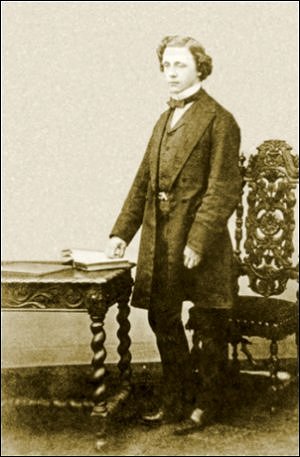
kemp=mag poetry magazine
More in: Archive C-D, Carroll, Lewis, Children's Poetry
Thank you for reading Fleurs du Mal - magazine for art & literature